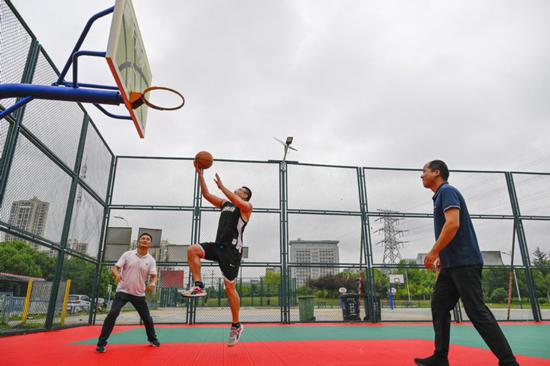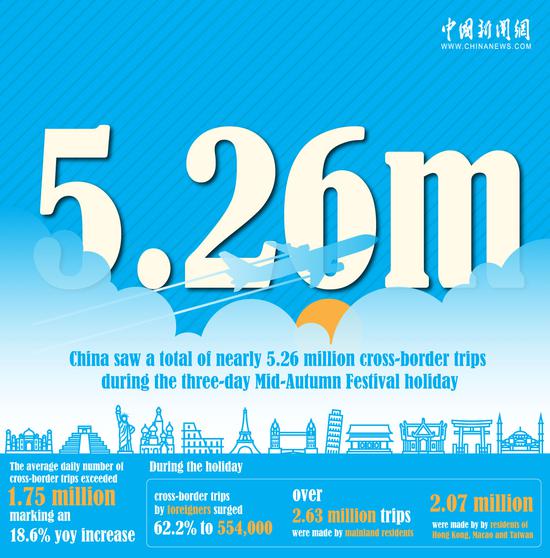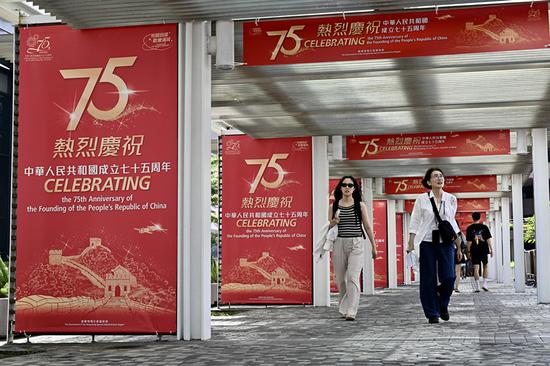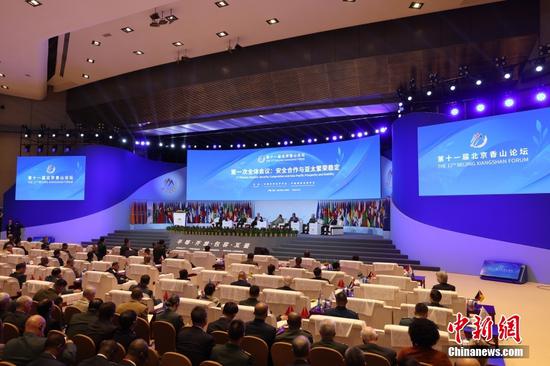
Men shoot hoops at a park in Hefei, Anhui province, on Sept 18. (ZHAO MING/FOR CHINA DAILY)
The Chinese mainland has topped the global wellbeing index, driven by a growing emphasis on fitness and community bonding, according to a recent industry survey.
The Global Wellbeing Report 2024 reveals that residents on the Chinese mainland scored an average wellbeing index of 79 points, significantly higher than the global average of 66 points.
The survey has been conducted by athleisure brand Lululemon for four consecutive years among full-time workers with higher education backgrounds, primarily Millennials (28-43) and Gen X (aged 44-59) from middle-income families in second- and third-tier cities in China.
Globally, the survey covered 15 markets, including France and the United States, between April and May of this year. Respondents on the mainland outperformed the global average across physical, psychological and social dimensions, largely due to a rising focus on fitness and well-being.
Seventy-seven percent of respondents indicated they now place more importance on personal wellbeing compared to last year.
Nearly all survey participants reported making efforts to improve their mental balance, physical health and social connections.
Exercise has proven especially beneficial, with two-thirds of respondents saying that participating in team sports offers high-quality social interaction and a strong sense of belonging.
Momo Verlin Kountchou, a fitness trainer who has worked in China for nine years, said he has noticed a significant increase in both offline and online group class attendance.
"Workouts should be fun and provide a sense of consistent growth and well-being," he said. "Group fitness sessions truly enhance attendees' social lives in various ways."
Despite the strong overall wellbeing index, challenges such as stress, loneliness and societal pressures remain, according to the survey.
The male wellbeing index stands at 74 points, notably lower than the 85 points reported by women. More than half of the respondents said societal pressures hinder their ability to fully express their thoughts.
Among Generation Z, the wellbeing index increased by four points to 73, but it still lags behind the overall average of 80 points. The report indicates that men and Generation Z respondents are less likely to seek support from personal networks.
Jane Li, a therapist and well-being trainer, agreed. "We need to encourage people to express kindness and face vulnerability through exercise, which can help reduce anxiety," said Li.
The report also found that 70 percent of respondents believe that slowing down and living at one's own pace is crucial for personal growth and wellbeing.
Additionally, small actions such as engaging in light physical activities and spending time in nature were cited as key contributors to relaxation, confidence and optimism.
Family, friends, and community also play a critical role in sustaining a positive mindset. Sixty percent of respondents noted that giving back to the community not only benefits others but also enhances their own sense of purpose and fulfillment, said the report.


















































 京公网安备 11010202009201号
京公网安备 11010202009201号